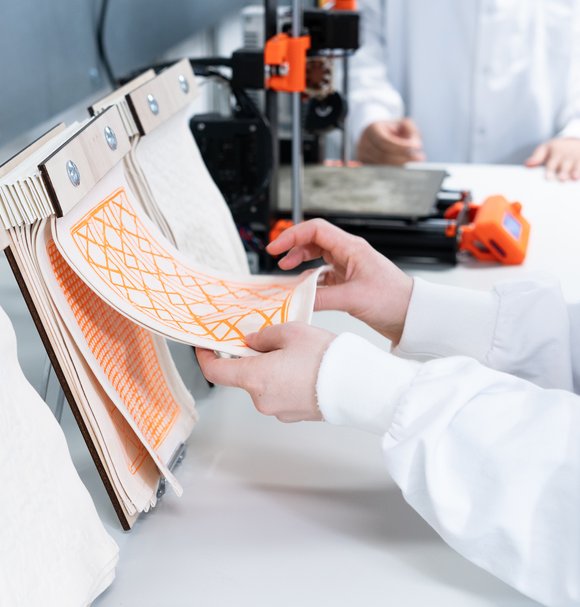Centre for Materials Science & Culture Biomaterials Lab
The Biomaterials Lab (Bio Lab) is a dedicated, Containment Level 1 space for interdisciplinary design-science biomaterials research and collaboration. Housed in the Rausing Research & Innovation Building in Battersea, the Bio Lab enables in-house exploration of biomaterials within the context of regenerative circular systems by providing infrastructure and technical expertise within a single facility.

The Lab is Containment Level 1 and equipped for experimentation with various organisms including microbes such as bacteria and fungi, microalgae and plants, mycelium and molds, or materials derived from them. The Lab features a microbiological safety cabinet to safely handle microorganisms, as well as several autoclaves to sterilise materials and waste. Organisms are grown under controlled conditions using static and shaking incubators, and strains and samples can be stored over long periods of time using low-temperature freezers.
Biological, chemical and mechanical manufacturing processes can be explored using equipment including: a fume cupboard, precise weighing balances, a pH multi-sensor probe, centrifuges, a sonicator (membrane disruptor), blender, oven / dehydrator, as well as a peristaltic pump for semi-automated liquid handling and several 3D printers for exploring additive manufacturing using biomaterials.

Importantly, the Bio Lab will allow for new inter- and transdisciplinary practices which integrate methods from design with materials science, microbiology, biotechnology, advanced manufacturing, and molecular biology.
The vision for the Bio Lab is to support the development of new whole-systems models and perspectives for materials design, and drive innovation in design methodologies, to enable practice-based and process-driven research which empowers future paradigm change for materials systems.



